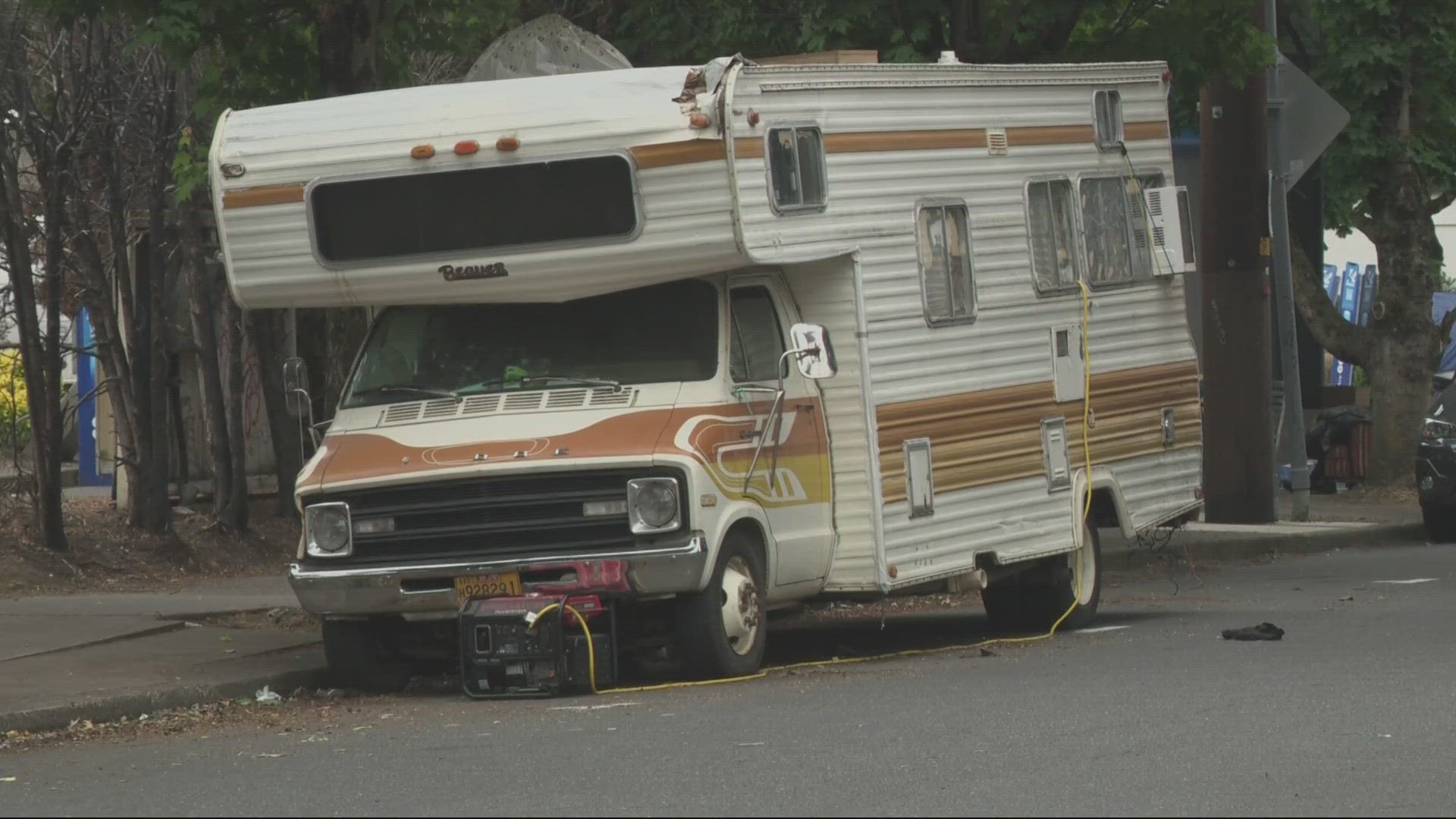PORTLAND, Ore. — For weeks, an orange and white RV has sat parked behind a gas station in Portland’s Central Eastside. It’s home to two young women and their three pets. Under the city’s new camping ordinance passed last week, they'll soon need to move the RV during the day — but it's not clear where it's supposed to go.
“They’re telling us to literally just disappear. There’s nowhere to disappear to,” said Zaina, one of the RV's residents.
The other resident, Velma Carter, said she and other homeless Portlanders weren’t aware that RVs were included in the city’s new camping ban, since most of the discussions in city council have been about around tents blocking sidewalks and storefronts.
“It’s my one-bedroom apartment that just happens to have wheels on it,” said Carter, who has lived in her RV for about a year.
The ordinance, which takes effect July 7, is one of the biggest moves the city has taken to address homelessness. It bans homeless camping on public property from 8 a.m. to 8 p.m., with the intention of spurring people to move into shelter or affordable housing.
Since Carter and Zaina use the RV as a campsite, under the new ordinance they have to follow the city’s general parking rules between the hours of 8 a.m. and 8 p.m. They must be lawfully parked — something that’s almost impossible for them to do, given the state of their RV.


“I can’t lawfully park this thing at all. Its VIN number doesn’t exist in the DMV database. I can’t register it since it’s an abandoned vehicle. It’s a ghost rig that’s been jimmy-rigged and parted together too much,” said Carter.
Now she'll need to move her makeshift rig during the day, which she said takes time away from getting back on her feet.
“That’s job-hunting time. How am I going to be job hunting with a house on my back?” she asked.
There are also places such as Northeast 33rd Drive where dozens of campers and RVs lined the street, each considered a campsite. Many of the vehicles don’t run and have been sitting there for years. It’s still unclear if and how they would be moved every day from 8 a.m. to 8 p.m.
“Instead of telling us we can’t do this, we can’t do that, tell us what we can do,” said Carter.
The city's answer: they can go into available shelters. A spokesperson for Mayor Ted Wheeler’s office said in a statement:
“If a person using a car or RV as a campsite has been offered alternative access to shelter or housing, and they decline to use those alternatives, then they are prohibited from camping anywhere in the city because they have an alternative place to go. If a person using a car or RV as a campsite does not have access to alternative shelter or housing because it is not available, then they meet the definition of ‘involuntarily homeless,’ and the person may camp if they follow the time, place, manner regulations implemented by the City.”
But homeless residents say that's easier said than done.
“I have tried shelters before in the past. I’ve gone through TPI, a lot of the shelters ... like, right now with my animals, it’s really difficult to do,” Zaina said.
Back in the Central Eastside, across the street from the RV, sits Heyday Salon where Brianna Seethoff works. The salon keeps its doors locked, she said, and staff often feel unsafe at work given the number of RVs, tents and drug use incidents happening outside their door. But she had mixed feelings about the ban.
“I’ve called 311 a bunch of times just to have it cleaned up … If we’re not going to implement services and mental health anything, I think it’s ridiculous,” Seethoff said of the camping ban.

